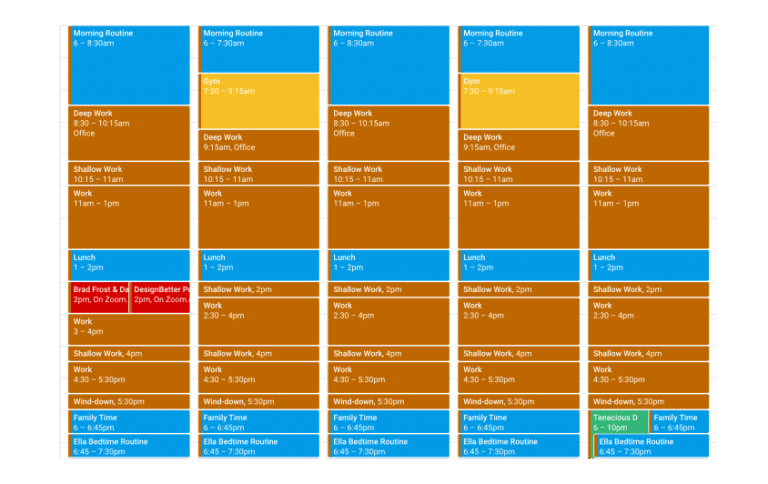Learn more about remotework with this collection
How to make rational decisions
The role of biases in decision-making
The impact of social norms on decision-making
The human brain needs guardrails at work. Otherwise, we fall into what's known as Parkinson's Law:
"Work expands so as to fill the time available for its completion"
By scheduling every minute of your day you not only guard against distraction but also multiply your focus.
Single-tasking -focusing on one task at a time-can make you up to 80% more productive than splitting your attention across multiple tasks. Plus, when you know you have time set aside later for checking email or replying to Slack messages you're less likely to give into the FOMO these tools create.
1.29K
672 reads
MORE IDEAS ON THIS
As Deep Work author Cal Newport writes :
"Sometimes people ask why I bother with such a...
1.29K
667 reads
Related collections
More like this
Time blocking and focus
By scheduling every minute of your day you not only guard against distraction but also multiply your focus.
Also, focusing on one task at a time can make you up to 80% more productive than splitting your attention across multiple tasks.
Time pressure and procrastination
Leaving a task to the last minute may makes us feel like we are working faster to complete the task. However, it does not mean we work better.
Time pressure generally impairs performance because it limits thought and action. Parkinson's law suggests that "work expands so as to fill th...
Set an ending time for tasks
Parkinson’s second law: Work expands so as to fill the time available for its completion.
Setting a micro deadline for daily tasks holds your brain accountable to the tick of the clock.
Read & Learn
20x Faster
without
deepstash
with
deepstash
with
deepstash
Access to 200,000+ ideas
—
Access to the mobile app
—
Unlimited idea saving & library
—
—
Unlimited history
—
—
Unlimited listening to ideas
—
—
Downloading & offline access
—
—
Personalized recommendations
—
—
Supercharge your mind with one idea per day
Enter your email and spend 1 minute every day to learn something new.
I agree to receive email updates
